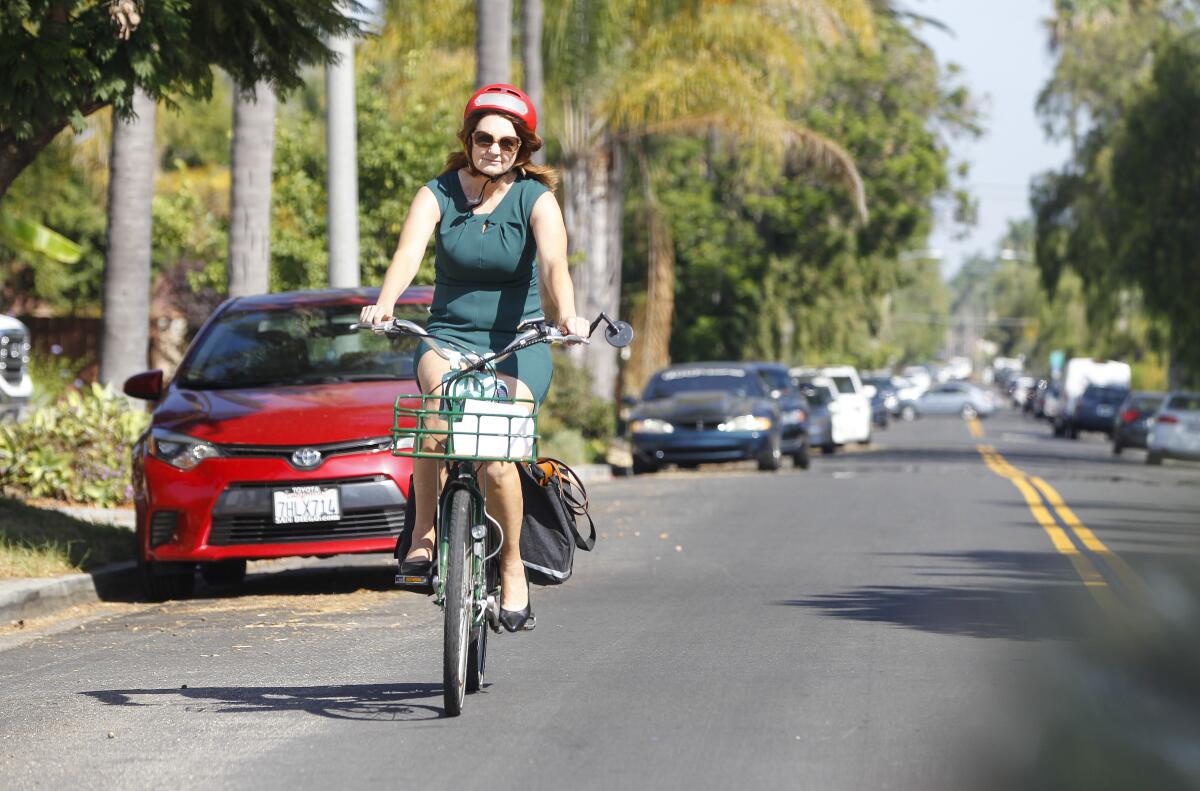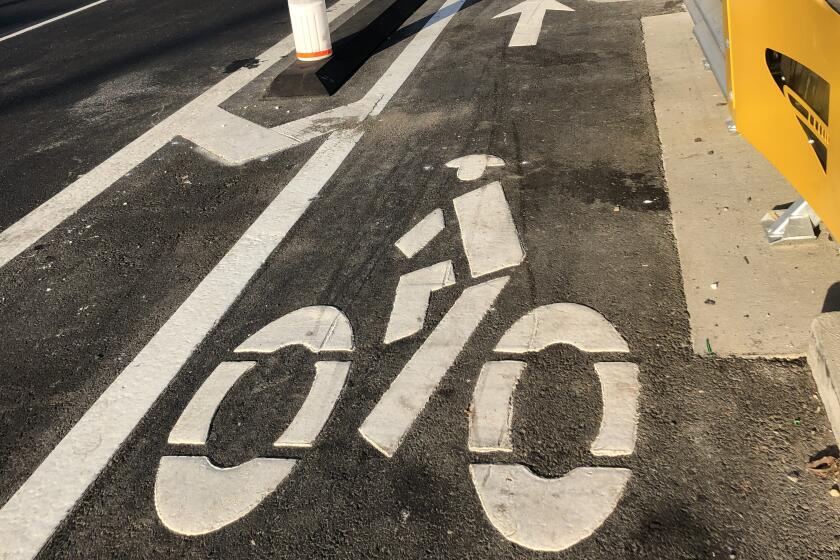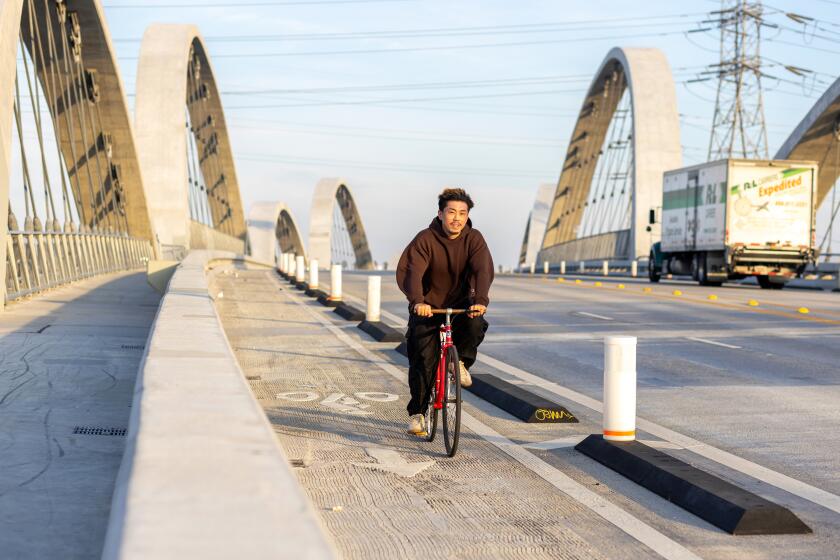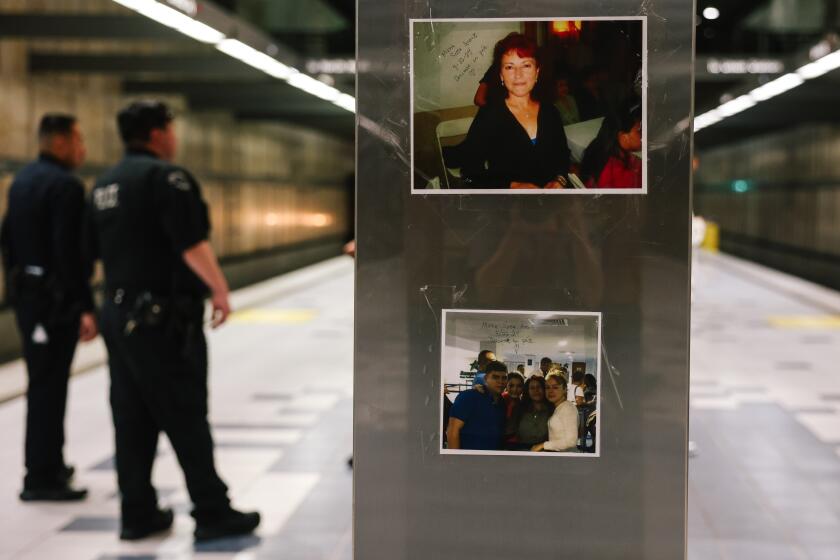Editorial: Why should a driver’s license be required for jobs that don’t involve driving?

- Share via
When Kirsten Bladh was searching for a job in urban planning she was surprised that nearly all the public sector listings she saw required a driver’s license, even though these were largely office work positions and often located in communities that have lots of bike lanes and transit options.
This is not an unusual experience for job seekers in California. Requiring a driver’s license seems to be a standard part of the screening process regardless of whether driving is necessary for the job. Even a bike mobility planning job in one Southern California city insisted that applicants have a license.
With safe, protected bike lanes and streets designed for humans, not only cars, we can have a future with an environmentally sound commuting option.
The requirement is not only arbitrary, it’s discriminatory.
It unfairly closes off jobs to certain groups, including people with disabilities that prevent them from driving, young adults and low-income individuals who cannot afford a car or insurance, and people who choose not to drive for personal reasons. Having a driver’s license is irrelevant to a person’s skills and capabilities. If a would-be employee is qualified, can reliably show up to the jobsite and do the work, why should it matter whether they drive?
Bladh, who is now associate director of state policy for Streets for All, decided to turn her frustration into legislation. The group worked with Sen. Anthony Portantino (D-Burbank) on a bill that would make it illegal under the California Fair Employment and Housing Act for employers to require that applicants have a driver’s license unless the job includes driving.
The governor’s budget proposal would slash the program that encourages biking and walking but would sink billions into widening roads, which aggravates traffic and pollution.
Senate Bill 1100 is a smart change that has sailed through the Legislature so far with no opposition. That’s good. California should be removing unnecessary barriers to employment.
The requirement for a driver’s license is a particularly pernicious barrier because it can be used as a subtle way to screen candidates for income, race and socioeconomic status. It’s expensive to own a car and pay for auto insurance in California, and proof of vehicle insurance is necessary to take a driver’s test. And if people can’t afford to own a car, there’s less need for them to obtain a license to drive.
Los Angeles leaders sat on the city’s ambitious Mobility Plan for years, fearing political pushback to bike, bus and pedestrian improvements. But the overwhelming support for Measure HLA demonstrates widespread support for safer streets.
Studies have shown that Black and Latino drivers in California are more likely to have their licenses suspended because of unpaid tickets, which is fueled by the state’s extraordinarily high fines and fees and racial profiling in traffic stops, according to California’s Racial and Identity Profiling Advisory Board.
Plus, the driver’s license requirement perpetuates the stereotype that a responsible adult is a driving adult. It encourages car dependency, which only worsens traffic and air pollution. Driving should be a choice, not a requirement in this day and age. And California is spending hundreds of millions of dollars a year building out transit, pedestrian and bicycling infrastructure so more people can safely and easily make the choice to get around without a car.
Violent attacks on the Metro system have scared riders and present an existential threat to public transit in Los Angeles. Leaders have to make major changes to keep the system viable.
Bladh said she was particularly confounded to see so many urban planning jobs demanding a driver’s license, when much of the work is to design modern cities to reduce people’s reliance on cars.
“You’d think it would be a benefit to have someone who chooses to live car-free.”
More to Read
A cure for the common opinion
Get thought-provoking perspectives with our weekly newsletter.
You may occasionally receive promotional content from the Los Angeles Times.













